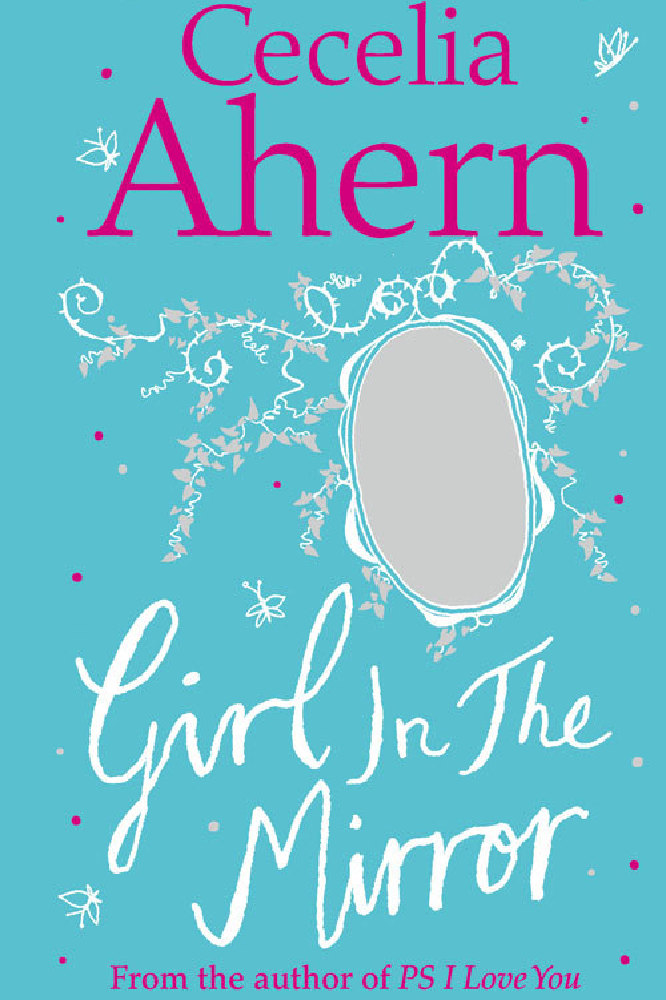
Girl in the Mirror/The Memory Maker
Girl in the Mirror/The Memory Maker is a book of two short stories by Cecelia Ahern, published in 2010. Girl in the Mirror is a short story about an elderly woman, Ellie, who lives in a house in which she keeps all of the mirrors covered with black sheets. The woman's granddaughter, Lila, has never questioned this habit and is startled to see that both her grandmother and the old house scare her friends. Moving on a few years and it is Lila's wedding day, she drives to her grandmothers house to change into her dress and the desire to see herself in her dress overwhelms her obedience and she disobeys her grandmother and pulls off one of the black sheets covering a large mirror. What she finds underneath alters the course of her life forever.
What starts as an unsettling story, turns into something truly horrific as Cecelia Ahern delves into a darker world than we have ever seen her dabble in before. This short story is possibly one of the most effective Cecelia has written, exploring a dark side to the magical worlds she delights in creating. It is hard not to draw parallels with Tim Burtons 2009 film Coraline, as the two stories have many overlapping elements to them.
This story does not have a happy ending like Coraline or Cecelia's previous work however, and leads the reader to it's rather horrifying conclusion. The ending is abrupt and unexpected, and is certainly not fulfilling for any fan of Cecelia's as the "bad guy", for a lack of a better word, gets to live their life happily ever after, where the protagonist settles for a second rate life, without even trying to set things right. This is a notion that Cecelia has never explored in her books, as she always wraps her stories up well; all the characters learn an important lesson and lives are improved because of it, but this is not the case with Girl in the Mirror.
The Memory Maker is the second story featured in the book which revolves around a man who makes a machine that can fabricate memories. He chooses a select few who are able to use it and these people all have reasons to want to create memories that he deems to be acceptable for use of his machine. The man has constant flashbacks of a lost love named Judith, who died in an accident many years ago. Since her death he has had little emotion or care in his life but upon his hiring of a young woman who is also named Judith, he finds himself caring once more.
Initially beginning as a simple story, The Memory Maker ends in an unclear conclusion. It seems like this man has been living his life, regretting the last moment he saw the love of his life, Judith, before she was tragically killed. Which, in essence, it is. But when the second Judith enters his world, everything becomes more messy. Initially, she is described to be a homeless person, begging in the street, but after he employs her she turns into a working woman. Then she transforms again into what could possibly be a victim of domestic violence, before she disappears completely.
Before she leaves, she also tells him her name is not Judith, it is Mary, to which there could be several conclusions to draw. The first is that her name was Mary from the start and the old man just wished for her to be his Judith and so imagined her in that way. The second is that led the old man to believe that her name was Judith, even though her name is really Mary because she knows of what happened to his love and is seeking to replace his regretful memory with something happier, releasing him from his sorrowful existence. The third is that the old man's entire encounter with Judith/Mary was a fabrication of the Memory Maker, which would also lead us to ask, what on Earth was the actual story here? Either way, the underlying moral lesson of the story is to learn to live without regret.
It seems like Cecelia has tried to write her first ambiguous story, in which the reader can draw their own conclusions, but she has done so in such an unclear way that the ambiguity itself is hard to grasp. It feels like this story has been half finished, and is in need of some fine tuning for it to be a coherent piece of work. Similarly, Girl in the Mirror feels like it's ending has been rushed and it needs to be given a bit more depth and development for the ending to reflect the intended tone of the story.
The two stories, although supposed to be short, are just too underdeveloped. Girl in the Mirror felt rushed and as such, has an unsatisfying ending for the reader. The Memory Makers overall narrative was messy and inconclusive. Making it hard to work out the true intention behind the narrative. Possibly some of Cecelia's weakest work, but it is nonetheless a deserved read, simply to read in wonder the magical ideas she can come up with at the drop of a hat, which is ultimately why her fans love her work so much.
By Sophie Atherton @SophAthers
Tagged in Cecelia Ahern

